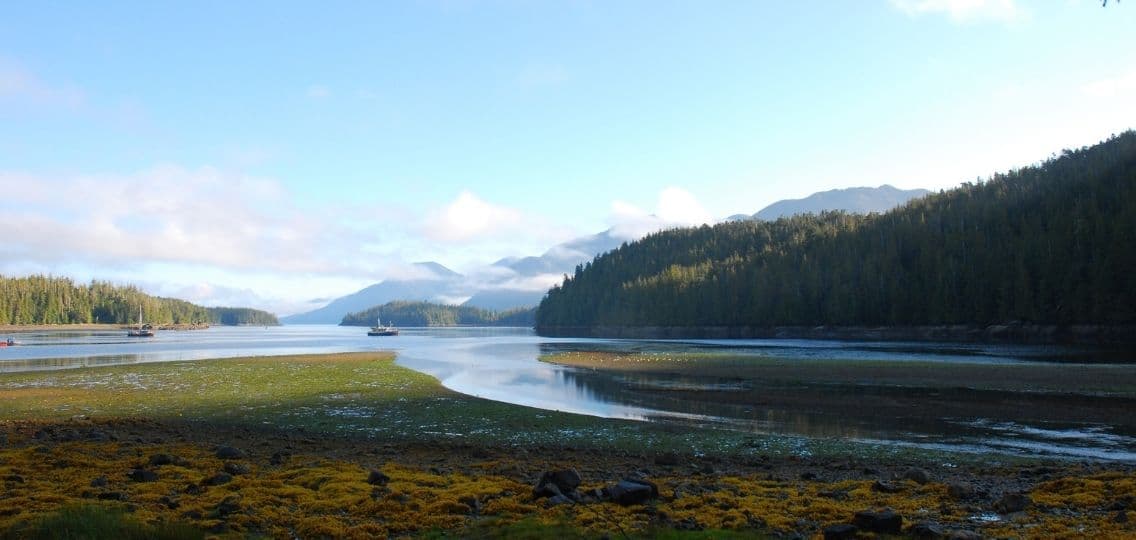Unlawful delays threaten humpback whales, white sturgeon, seabirds and caribou along proposed Northern Gateway route
VANCOUVER – Environmental groups are taking the federal government to court over its continued failure to implement the Species at Risk Act (SARA) and fulfill its legal responsibility to protect endangered wildlife living along the proposed Northern Gateway pipeline and shipping route.
The lawsuit challenges the federal government’s multi-year delays in producing recovery strategies for four species that would be affected by the proposed Enbridge Northern Gateway project — the Pacific Humpback Whale, Nechako White Sturgeon, Marbled Murrelet and Southern Mountain Caribou. The habitat for all four species, which lies along the proposed pipeline and shipping route, would be impacted by the construction and operation of the Northern Gateway pipeline.
The recovery strategy for each of these species is at least three years overdue.
The federal government has delayed completion of recovery strategies for 188 at-risk species; in many cases, these delays stretch years past the mandatory deadlines set out in SARA. Currently, 87 recovery strategies are more than five years overdue.
“Delay threatens the survival of our endangered wildlife. That’s why the deadlines in SARA for producing recovery strategies are mandatory,” said Sean Nixon, staff lawyer with Ecojustice. “SARA is a good law that could help endangered species recover. The real problem is that the federal government won’t implement it.”
Ecojustice filed the litigation yesterday in Federal Court, acting on behalf of five environmental groups: the David Suzuki Foundation, Greenpeace Canada, Sierra Club B.C., Wilderness Committee and Wildsight.
Loss of habitat is the key cause of decline for more than 80 per cent of Canada’s species at risk. In order to survive and recover, at-risk animals and plants need protection of their critical habitat. After a species has been listed under SARA, the federal government is required by law to produce a recovery strategy that identifies the species’ critical habitat based on the best available scientific information and Aboriginal traditional knowledge.
By delaying the recovery strategies and therefore delaying identification of the critical habitat it must then protect, the federal government is making it easier for big projects, like the Enbridge Northern Gateway pipeline, to speed through regulatory review without a full understanding of the long-term impacts on these wildlife species and their habitat. Other species at risk with delayed recovery strategies that will be impacted by the pipeline include: boreal caribou, northern goshawk (laingii subspecies), common nighthawk, olive-sided flycatcher, and Canada warbler.
“While failing to meet its legal responsibility under the Species at Risk Act, our government has nevertheless found plenty of time and resources to vigorously promote the Enbridge pipeline proposal,” said George Heyman, executive director of Sierra Club B.C. “All of the species that are listed in this case are unique and irreplaceable. The federal government should be giving these species a fighting chance to survive, instead of fast-tracking environmental assessments of large scale projects in the absence of important information.”
On paper, SARA presents a logical, scientifically sound framework for protecting vulnerable species and giving them a chance to survive and recover. In practice, however, the Act has been poorly implemented by the federal government; its efforts have been characterized by chronic delays in producing recovery strategies, identifying critical habitat and protecting that habitat once it has been identified.
“Taking the federal government to court over their refusal to protect Canada’s endangered species is a last resort for a desperate situation,” said Gwen Barlee, policy director with the Wilderness Committee. “Unfortunately, we had no other choice as the government is routinely ignoring the requirements of its own Species at Risk Act.”
The groups seek a court order to force the federal government to release recovery strategies for the four species that are the subject of this litigation. These recovery strategies are an important first step in ensuring these endangered species have their habitat protected.
“Failure to implement SARA is putting these four species and all endangered species across Canada at further risk,” Nixon said. “It’s time to stop the delays and get on with the real work of protecting habitat and recovering our wildlife.”
-30-

